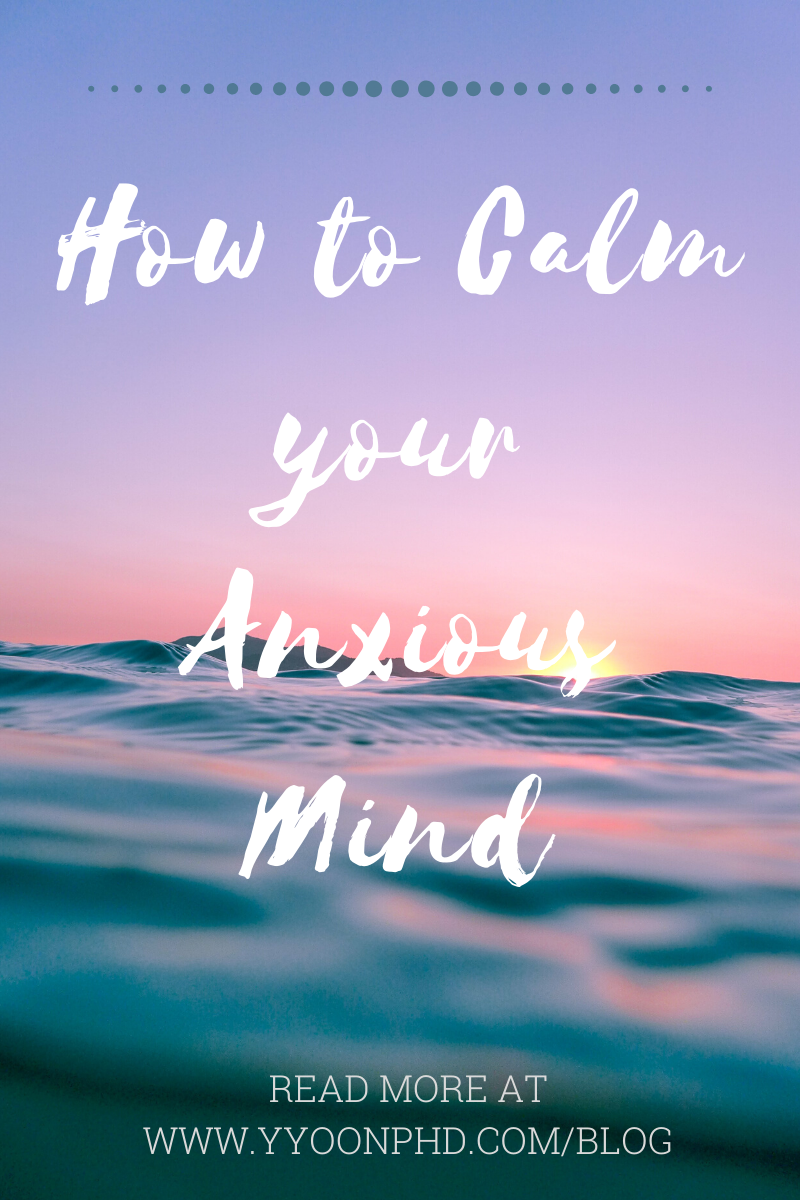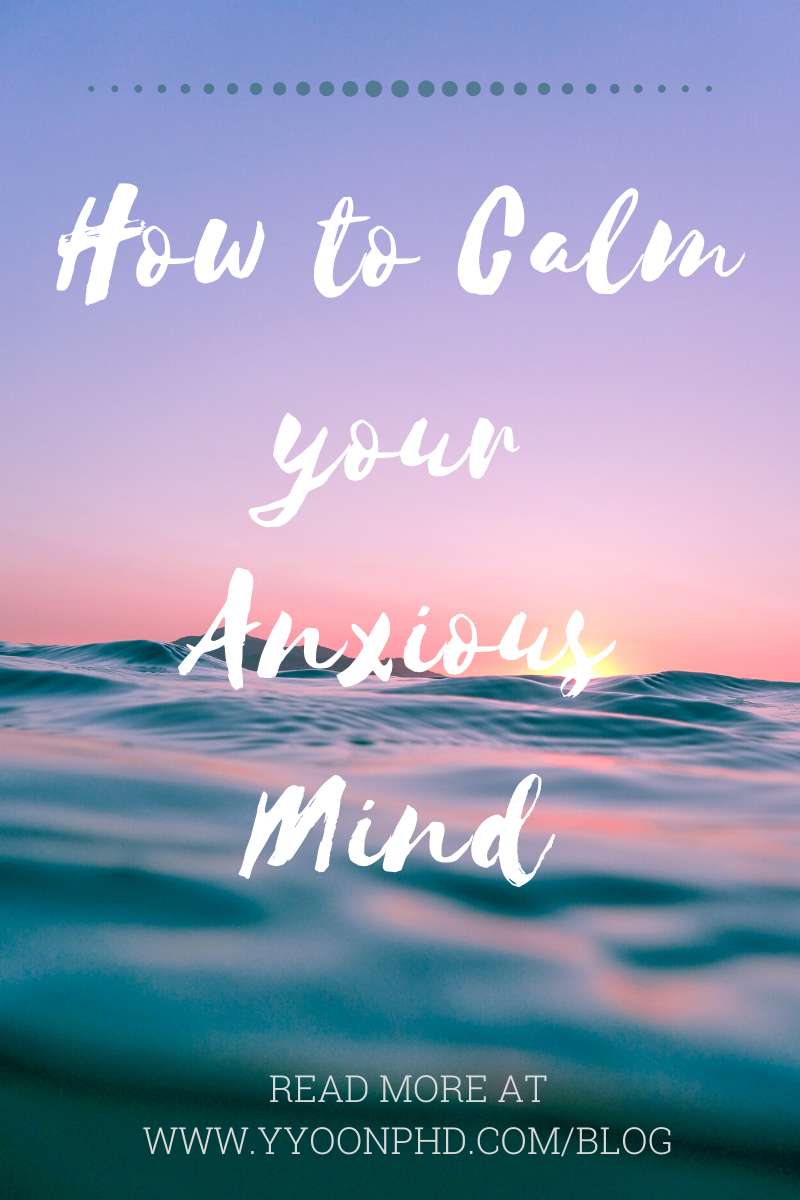It’s like I have this other voice in my head that’s telling me everything that could go wrong.
I have a hard time shutting off this thoughts in my head and it’s making me so anxious.
When it’s time for me to go to sleep, that’s when all of the thoughts in my head get louder.
If you have ever said these things to yourself, rest assured that you are among a very large group of people who struggle with the same issue. Most of us at some point in our lives have struggled with the “voice in our head” that is very good at making us feel constantly worried, anxious, and stressed. The worst part is when the voice never seems to shut off no matter how hard you try to get rid of it.
We’re thinking all of the time. From the minute we wake up till the moment we’re trying to get some sleep, our minds do what they do best. They wander, think, speculate, predict, judge, and they make conclusions. Our minds are quite powerful that way, right?
But let’s be honest. If you’re reading this, you probably have a love-hate relationship with the thoughts in your head.
You probably wish you didn’t always have to be thinking about everything all the time. Or that your mind didn’t always visit those annoying places of anxiety, worry and stress.
Today I’ll address:
Strategies for how to work with some common types of anxious thoughts
Tips on how to cope when you are too overwhelmed with anxiety and worry
By the end of today’s post, I hope you find comfort in the fact that you are certainly not “crazy” for having these experiences in your head. And most importantly, you will be more equipped to deal with these thoughts when they arise.
How to Calm Your Anxious Mind Blog by Dr. Yesel Yoon at www.yyoonphd.com/blog
The “Greatest Hits” of Annoying Thoughts
Here are some common examples of thoughts people struggle with and how you can address them differently.
THE “Should” THOUGHTS: Thinking about what you “should” do.
Turn a “Should” statement into a question of “Want” or “Need”
Instead of saying: “I should be doing more work right now” even though you could really use a break,
Ask yourself: “Do I want to do more work right now?” or “What do I need right now?”
Whether you decide if you do or do not want to act on the initial thought, that is up to you. But at least you are making an active choice.
Instead of acting from a place of obligation or someone else’s expectation, you can make a choice that is best suited for your needs and wants.
The “What If” THOUGHTS: Thinking “What if” and making up a lot of potential outcomes that could happen.
The problem with this common line of thinking is that it prevents you from being in the present moment. You’re so worried about the future that you’re not able to notice important aspects of the present situation.
There is wisdom to anticipating potential outcomes. No doubt about that. But if you only ruminate about potential outcomes, you are most likely going to remain stuck in a place of indecision and worry. The fear of what could happen will prevent anything from actually happening.
Get out of the “What if?” Spiral with these steps: Pause and Examine, then Plan.
Pause and Examine: Don’t let one “what if” turn into another and another (hence the spiral). Take a moment to pause and examine it. Rather than let the “what if” thought take over, stop and ask “Then So what?” or “Then what would I do?”
Create a plan. Be proactive if that’s what it takes to feel more secure. Address the fear with a plan of action. If the worst possible outcome were to come to pass, what would you do? You may surprise yourself with how you are able to come up with a plan. You may surprise yourself with how the worst possible outcome is not quite as bad as your initial anxious thought made you feel.
Is It Possible to Get Rid of Anxious Thoughts?
The short of it is: No.
But don’t worry...it’s not all that bad.
What you can do is:
Change your response to the thought
Change how much of an emotional or mental toll it takes on you.
Do you want to know why this works? Here’s a secret:
The thought itself is not actually the problem.
The problem is how we respond to the anxious thought. It’s that story we tell ourselves about the thought that makes the problem. But this part is also where we can intervene. How?
Change your Story about your Thoughts
Rather than letting the “Should” thought become a story about how you’re not doing the right thing if you don’t listen to that thought, change your story to make it about what you want or do not want. It’s more empowering and lets you take control.
Rather than letting “What if” thoughts continue to spiral and keep you feeling confused, afraid and stuck, shift the story to how you can take certain steps to address the fear. These are both examples of how to turn the story around so you are taking a more active empowered approach towards your thoughts instead of letting them run the show.
It would be misleading if I were to tell you that you can reach your number one goal to “get rid” of these anxious thoughts altogether.
A positive side effect of changing the story to these thoughts might just be that the frequency or the emotional sting to the thoughts may decrease over time! So you might almost feel like you’ve “gotten rid” of them. But not so fast! Do not be surprised when these thoughts reappear. Instead, when they do reappear (oh yes they will), you will be more prepared to take them on.
When the Thoughts Just Feel Like Too Much Right Now
“But Yesel, I don’t just want to “deal” with these thoughts! I feel anxious, stressed and worried all of the time and I need help feeling better right now!”
Particularly during this time, while I am writing this during the coronavirus crisis, many of us are stuck at home and may be experiencing more downtime than before. With some more downtime and periods of boredom or isolation, you may notice an increase in the experience of these anxious, worry-filled thoughts. It make sense given there is a lot of anxiety-provoking news out there right now. So how do you cope when you’re flooded with these thoughts?
When you’re feeling overwhelmed and anxious with these bothersome thoughts, here are some practical tips for how to deal with the unpleasant feelings:
Take a deep breath - Focus on taking deep full belly breaths. This will calm your body and mind and get you out of panic mode. You will cue your body that it is okay to relax. Do 5 cycles of full, slow in and out breaths right now. See how it feels.
Talk to someone - When you talk out your thoughts to someone else, it requires you to put a name to the feelings and thoughts. It is powerful to label what types of thoughts you’re having. Also, speaking to someone else about what you’re thinking will allow you to get someone else’s perspective.
Get it out - Express your thoughts outwardly. Journal, vent through writing, singing, art.
Be active - Get that anxious energy out. Even five minutes of physical activity will boost your mood, discharge some of the anxious energy, and get you out of your head and back into your body and your surroundings.
Distract yourself if need be - This is a short term solution but an effective one. If your thoughts are swirling, watching a comedy show will quickly boost your mood, make you laugh, and have you focused on something else. Engage in another activity that you enjoy. Better yet, engage in something that connects you to other people in a productive healthy way (not just panic scrolling your social media feeds).
You Are Not Your Thoughts
Remember you can respond differently to the thoughts you have. While the initial thoughts often make you feel anxious, insecure, or fearful, you can respond to them. Change the story those thoughts are trying to tell you.





